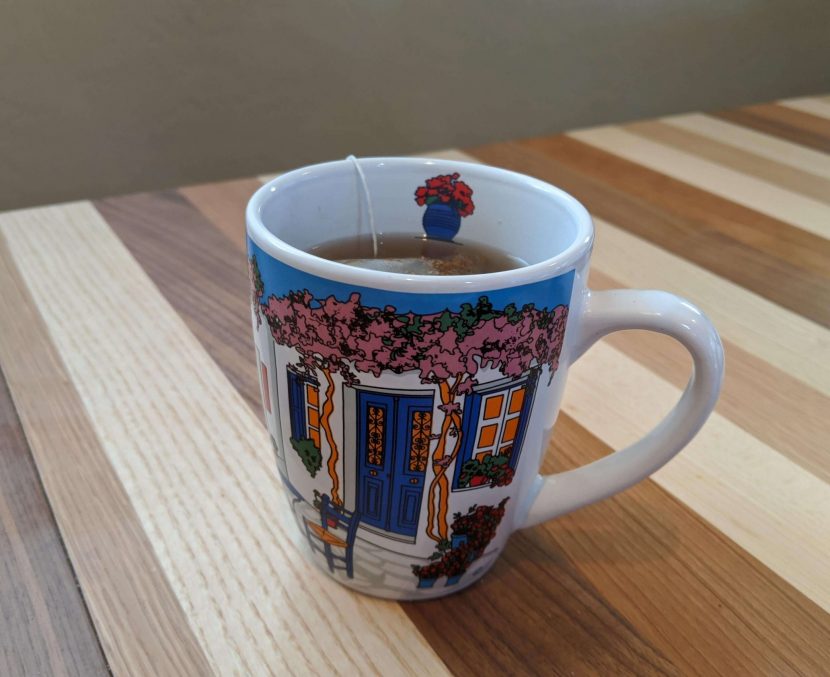Whether you call it “hemp tea” or “CBD tea” doesn’t matter. It’s the same thing. Hemp tea is full of CBD. Go ahead and call it whatever you prefer.
In the United States, it can be confusing, almost purposefully so. There’s a patchwork of rules all across the United States. Herbal teas, on the other hand, are legal everywhere. Could that be the reason?
Insomnia is only one of CBD’s many things, also known as cannabidiol, is supposed to alleviate. Drowsiness is a side effect experienced by some people.
Yet if it’s, for example, joint pain that’s keeping you up, CBD can alleviate that. That can help you sleep.
Besides sleep, what else is hemp tea good for?
Other things it’s purported to help are:
- Heart disease (it’s antioxidative)
- Breathing problems (it’s a bronchodilator)
- Chronic pain (it binds to cannabinoid receptors in the body and also has the antioxidative properties listed above)
- Stress (CBD enhances the serotonin receptors in the body, making them more active. Serotonin is the feel-good chemical that your own body produces.)
Cannabinoids are the special compounds in the plant that interact with receptors in the body. CBD is one of the cannabinoids in the plant, and another one is called THC (tetrahydrocannabinol). Unlike THC, CBD won’t make you feel high. It can, however, affect you in different ways.
Whether it and its slightly bitter taste can help you get a good night’s sleep depends on what’s at the root of your difficulty.
Lots of things can be at the root of your insomnia. Some of them: anxiety, medication, dietary habits (too much caffeine), physical conditions, or having a terrible place to sleep.
While some studies have been done on CBD’s ability to help sleep, they won’t be the kind of high-quality research that answers any health-related question definitively. The funding for such research simply isn’t going to be there. Anything related to CBD will not be a product anyone has a monopoly on. Because there’s no money in it, there’s not going to be millions of dollars from investors available to study it, at least in the near term. Other possible funding sources for such studies are government and trade associations in the future.
Nevertheless, this lack of high-quality studies doesn’t mean CBD won’t work better than a high-priced sleeping pill.
Assuming you buy from a reputed supplier, this works in the consumer’s favor. Relative to the effect, the price will be reasonable. There’s a lot of price competition.
Though they aren’t scientific, anecdotes or testimonials of how CBD worked for one person or another shouldn’t be dismissed entirely. Some stories can tell you whether CBD tea worked for someone, though they very well might not work for you.
One thing to remember is that most participants in such studies noted CBD wasn’t an immediate help to their sleeping. The effect took a few nights to build up. This is interesting because you also have a problem of habituation with CBD. In that, CBD is no different from any other medication.
Another thing to note is that studies used a variety of ways to deliver CBD. Most studies consider CBD oil. This matters because bioavailability can vary depending on the form. Much of the CBD in oil isn’t able to be used by the body.
It makes sense to try CBD or hemp tea. Various good-tasting, sleep-promoting components can be combined with a hemp infusion.
Works best with other measures
CBD works best in conjunction with other moves to improve your sleep.
Ask yourself what else can be contributing to your sleeplessness? Besides taking an herbal tea, what else can you work on?
Are you drinking six or more cups of coffee up until noon in the day? Your system won’t have time to clear the caffeine completely. Try cutting back.
Are you worried about impending deadlines? Stressed? Maybe a program of positive self-talk (self-affirmation statements) would help.
Too much energy too late in the day? Take a look at how, whether, and when you exercise.
Milligrams of CBD isn’t a good measure of potency
You’ll see milligrams listed for a variety of CBD products. That’s not a good measure of effectiveness because bioavailability is what matters. This amount primarily depends on factors like your genetic makeup and the way it’s taken. The term “bioavailability” refers to how much of the substance the body can use. If the dose is high and not much of the dose is bioavailable, then the substance is wasted.
CBD isn’t going to make you high. All it will do is alleviate the problem you have. The goal is to take enough to have the effect, not extra. Additional CBD isn’t going to have any effect. It’s a waste of money.
Also on the blog:
James Cobb RN, MSN, is an emergency department nurse and the founder of the Dream Recovery System. His goal is to provide his readers with simple, actionable ways to improve their health and maximize their quality of life.
This post contains affiliate links for which we receive a commission. This has no effect on our opinions.
